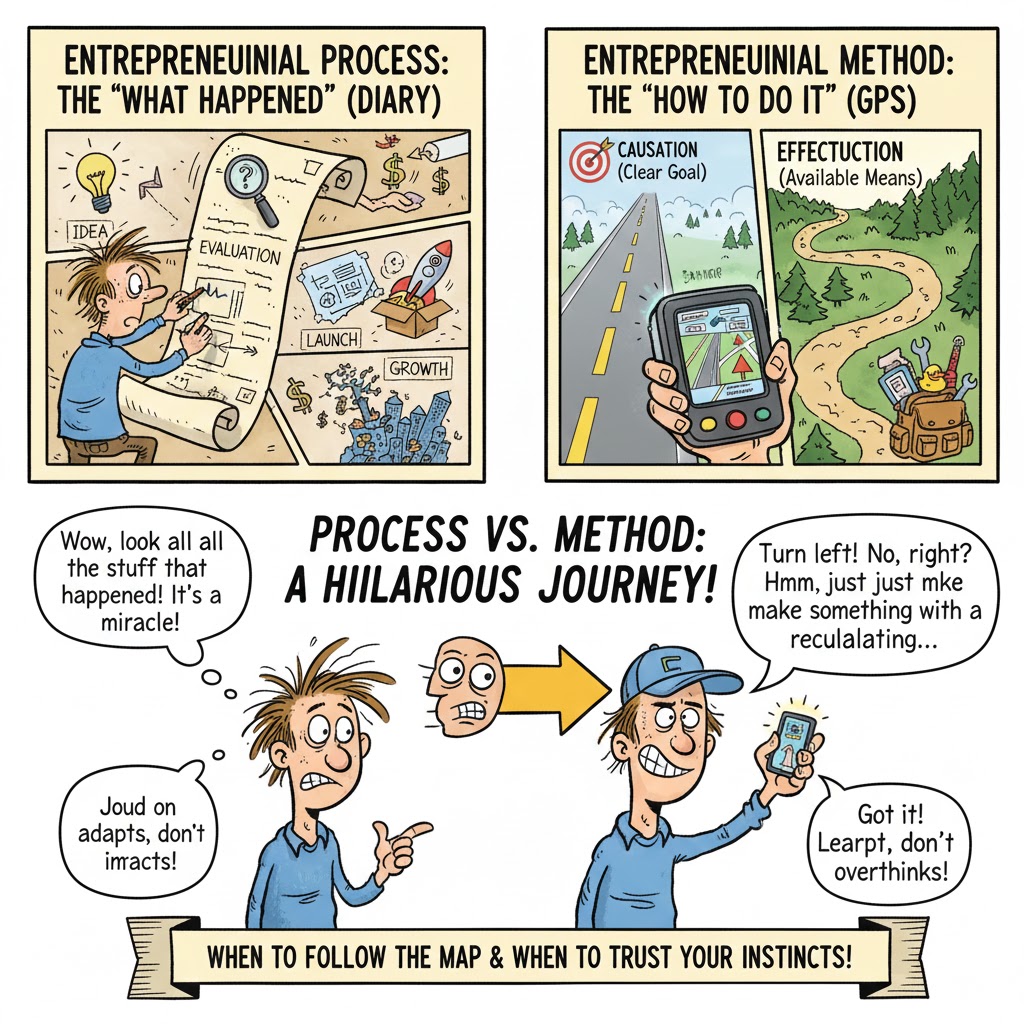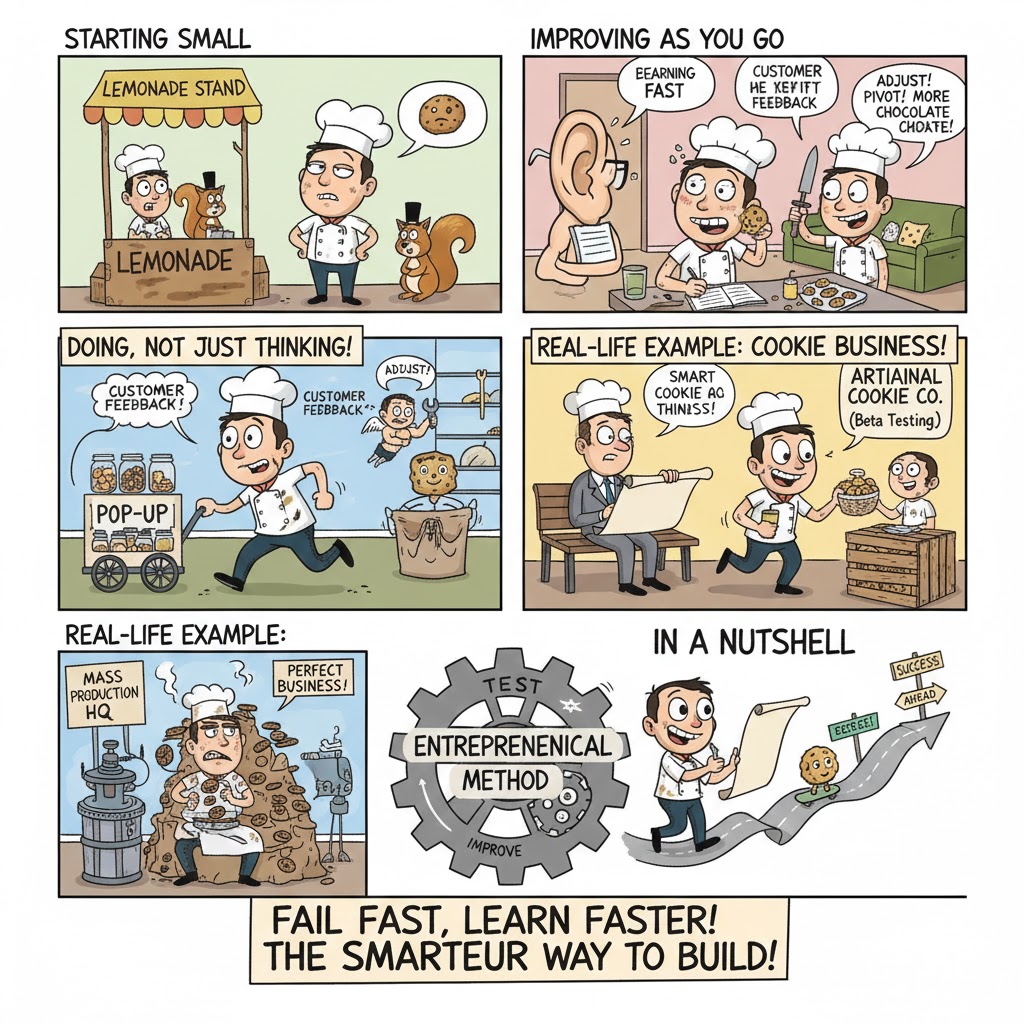Most of the discussion on how to approach the venture building exercise from the venture idea could be laid out into two broad approaches. The lean startup approach is abundantly talked about and followed in various accelerators incubators etc. and the other being the effectuation approach. While we would be shy of providing a detailed discussion on the lean and effectuation approaches here, it would be incomplete without touching on this topic. We give a cursory view of the differences made at the fundamental principles. We thereby provide contrasting perspectives in understanding the two approaches to venture building.
The lean approach focuses on building a venture, beginning with a venture idea, keeping the consumption of the resources to the minimum, yet= investing sufficiently to identify a plan to accomplish the venture through multiple experiments. This approach makes an entrepreneur the central actor, and the primary person in whose mind the journey takes shape. The dominant learning is done through analysis of the outcome of the actions and interacting with customers.
On the other hand, the effectual approach does not consider venture ideas to be a necessary starting point. An individual is but a bundle of capabilities whose skills, knowledge can be utilized either through their agency or through someone else’s agency into creating the venture. The evolution of the venture is through the process of co-creation, and so the venture is constructed through the commitment of stakeholders.
While these two schools portray two different aspects of the venture creation process, an individual entrepreneur executing it does not need to limit himself/herself to one school or the other exclusively. Both these perspectives deal with the resource constraint issues an entrepreneur faces in different ways. The two perspectives provide useful lenses to consider dealing with the situation at hand, and by doing so, the entrepreneur could choose and design a path (often combining the two perspectives) to build the venture.
Ask yourself:
If I am dealing with a resource constraint situation,
What would a lean startup say about dealing with the situation?
What would the effectual approach say about dealing with the situation? What is doable given the two perspectives? Could I combine these two learnings in a useful manner to design a solution past my constraints?

